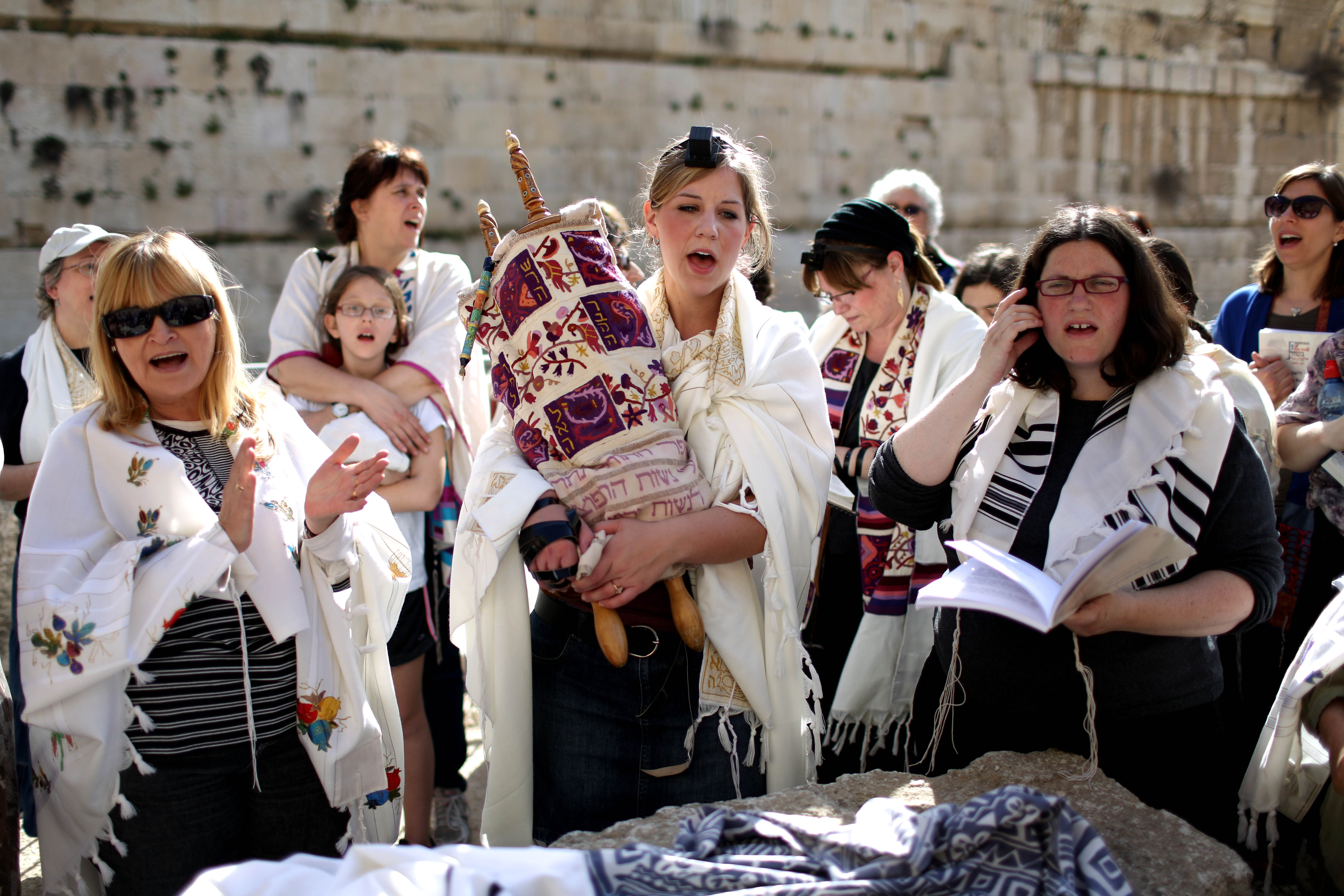This post is part of a series discussing the 2013 Jewish
Orthodox Feminist Alliance (JOFA) 8th International Conference of Feminism and
Orthodoxy. You can read my notes on this session here.
After being interviewed for the Forward video about the JOFA Conference, I went to The WOW Factor:
Women of the Wall. I was familiar with panelist Rabbi Jackie Koch Ellenson, the
Director of the Women’s Rabbinic Network and International Vice-Chair of Rabbis for Women of the Wall, from her involvement in Lilith magazine. I had not heard of the other panelists: Cheryl Birkner Mack, a WOW board member and teacher of Judaics and English as a Foreign Language, and Rahel Jaskow, a longtime member of WOW and translator, editor, writer, and singer. The session was moderated by Rabbi David Kalb, Director of Jewish Education for the Bronfman Center for Jewish Life at 92nd Street Y.
When I first entered the Jewish feminist scene, I immediately began to support WOW’s controversial prayer services at the Kotel (the Western Wall). When Anat Hoffman, WOW’s leader, was arrested in 2009 for praying with a tallit (prayer shawl) because it is traditionally only worn by men, I rallied behind WOW. I’m not sure how much I thought about the issue at hand, though; my support mostly stemmed from the desire to be in solidarity with the rest of the Jewish feminist blogosphere. Once I started thinking about it a little more, I began to feel my support for WOW waver. I strongly believe that when we participate in Jewish feminist actions, it is vital that they come from the heart and not from some misguided sense of making a statement. The more I kept up with WOW’s doings, the more I felt like WOW was going for shock value and political statements rather than a genuine desire to make the Kotel a comfortable prayer space for every Jew.
When I first entered the Jewish feminist scene, I immediately began to support WOW’s controversial prayer services at the Kotel (the Western Wall). When Anat Hoffman, WOW’s leader, was arrested in 2009 for praying with a tallit (prayer shawl) because it is traditionally only worn by men, I rallied behind WOW. I’m not sure how much I thought about the issue at hand, though; my support mostly stemmed from the desire to be in solidarity with the rest of the Jewish feminist blogosphere. Once I started thinking about it a little more, I began to feel my support for WOW waver. I strongly believe that when we participate in Jewish feminist actions, it is vital that they come from the heart and not from some misguided sense of making a statement. The more I kept up with WOW’s doings, the more I felt like WOW was going for shock value and political statements rather than a genuine desire to make the Kotel a comfortable prayer space for every Jew.
However, having heard this panel about WOW, I now realize
that these women are in it to improve the Jewish people and state of Israel,
not get their names in the press. They want to make the Kotel accessible and
welcoming to every Jew, regardless of their denomination or past experiences
with Judaism. I heartily support them in this goal.
Although I would not feel comfortable praying with tefillin (phylacteries) or a tallit, as many WOW members do, I still
think that WOW’s message and aim are worthy ones. My personal attitude towards
Israel is that it should be a Jewish state, not an Orthodox one. Consequently,
all forms of Jewish expression should be recognized as equally legitimate, and
all of the denominations should make space for each other. This should apply at
the Kotel as well. Although I do not personally want to lay tefillin at the Wall, I think it’s
extremely important that women are able to do so without being harassed or
arrested. That’s all WOW is after: When asked about what her hopes for the
future of the Kotel are, Birkner Mack responded, “respect and acceptance.”
I just came home from a ten-day trip to Israel through
Birthright, and I have never more spiritual or connected to God than when I
prayed at the Kotel. Touching the ancient stones and placing a note in their
cracks, I became fully aware of the magnitude of the destruction of the Beit
HaMikdash (Temple); I have never felt such a deep yearning for it to be
rebuilt. For me, it was meaningful to say Psalms and make requests in my own
words. For WOW members and other women, it is meaningful to participate in
Torah reading while wearing tefillin
and tallit. I could not imagine
taking such a powerful experience away from them.
I am so happy that I experienced this panel, because it opened
my eyes to the reality of WOW. I truly hope that I make it to Israel at least
one more time so I am able to pray with them.

Talia,
ReplyDeleteI'm so glad that we were able share the real goals of WOW with you. Please know that while some of the members of the group are willing to give up on our rights to pray at the Kotel, there is a growing group who will insist on our rights there. Hope you'll join us soon.